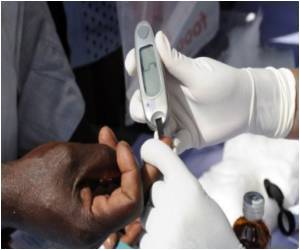Mild, diet-induced diabetes has been treated successfully in mice by scientists who worked on stimulating the production of a particular enzyme.

Increased levels of this enzyme, called fatty acid elongase-5, restored normal function to diseased livers in mice, restored normal levels of blood glucose and insulin, and effectively corrected the risk factors incurred with diet-induced diabetes.
"This effect was fairly remarkable and not anticipated," said Donald Jump at Oregon State University.
"It doesn't provide a therapy yet, but could be fairly important if we can find a drug to raise levels of this enzyme.
"There are already some drugs on the market that do this to a point, and further research in the field would be merited," he added.
The studies were done on a family of enzymes called "fatty acid elongases," which have been known of for decades.
Advertisement
The scientists used an established system, based on a recombinant adenovirus, to import the gene responsible for production of elongase-5 into the livers of obese, diabetic mice.
Advertisement
"The use of a genetic delivery system such as this was functional, but it may not be a permanent solution," Jump said.
"For human therapy, it would be better to find a drug that could accomplish the same thing, and that may be possible. There are already drugs on the market, such as some fibrate drugs, that induce higher levels of elongase-5 to some extent."
The potential for raising levels of elongase-5 would be a new, specific and targeted approach to diabetes therapy, he said.
"These studies establish a link between fatty acid elongation and hepatic glucose and triglyceride metabolism," the researchers said.
The study was published in the Journal of Lipid Research.
Source-ANI















